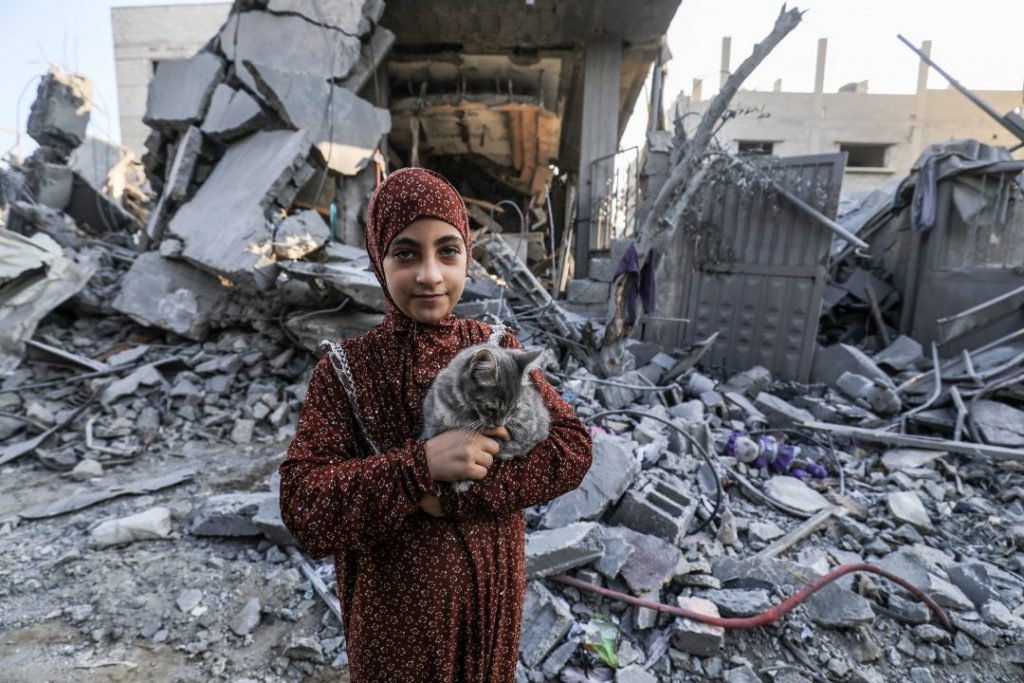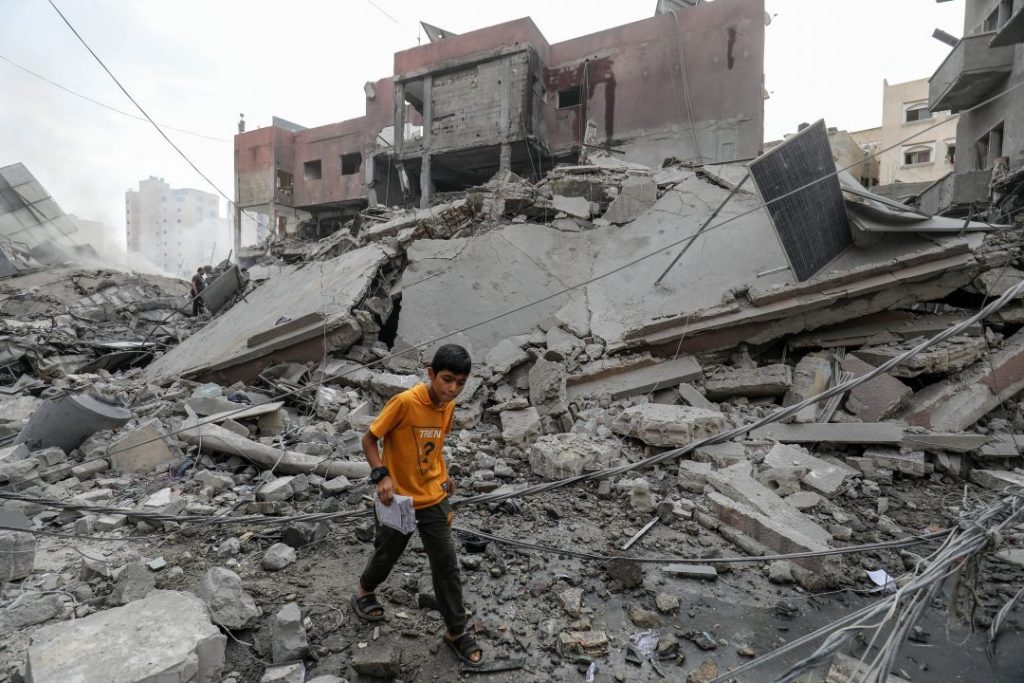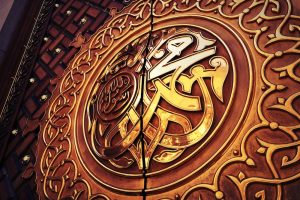
© Shutterstock
Tarik Ataul Munim, Spain
The images we see of the current situation in Gaza due to the war are truly chilling. Whilst the situation is truly deplorable for the victims of the war, it is extremely inspiring to see the resilience and hope shown by the people in Gaza. This is something that is going viral on TikTok, and we see many people commenting on how they are inspired by this attitude.
In one of these videos, we see a woman walking next to her relative on a field of debris, surrounded by blocks of concrete. She is explaining to him that as long as they keep being patient and maintain their faith, Allah will allow them to rebuild it again and better than before.
After praising God, she tells him that no matter how He tests them, whether it be through sickness or the destruction of their home, they should always praise Allah. Emotion then overwhelms her as they both embrace each other.
In another video we see a man inside a large room, surrounded by people. In the video he is bluntly telling people not to cry and to be strong. Later he is asked about what losses he has suffered, and he replies that he has lost two children, a 22-year-old and a 3-year-old, both on the same day. And he does so without showing anger or grief, instead he shows resignation to the will of God.
Of course, there is also pain and suffering, it’s not all smiles. However, it is certainly interesting to see that though people in Gaza are dying, their homes, workplaces and hospitals are being destroyed, yet they are still keeping their faith. There are many lessons that we can learn from this, that can help us in our daily lives.
For example, we can see in another TikTok video a man standing on a field of debris, in front of a group of buildings that have been destroyed, and he is smiling to the person talking to him. He tells him that that they are fortunate that his family is safe and praises Allah for that by kissing his fingers and pointing to the sky.
But where does the inspiration come from? When Islam was founded, there was an African slave who accepted the message of the Prophet of Islam (sa), even though his master was a fierce opponent. Because of this, the master would take him to the outskirts of the city of Makkah at noon in the scorching sun, make him lie on the burning sand with his back bare, place heavy stones on his chest and tell him to renounce his religion.

His story and that of many other Muslims, including the life of the Prophet Muhammad (sa), who had to endure 13 years of persecution with patience and without violence, solely for abandoning idolatry and believing in Allah, is the source of inspiration for Muslims.
Many of us would collapse if we had to go through this torture.
In fact, we can imagine how difficult it must be for the Palestinians that have to suffer the losses of their loved ones. We can see an example of this in the video of a young Palestinian who is kneeling next to the bodies of dead people covered in sheets, his hand placed on top of one of them. He is sobbing presumably because he lost someone dear to him. However, next to him his father is encouraging him to be strong, to be grateful, and to remember that this is the will of Allah. With this encouragement, he wipes his tears and they both stand.
But what happened to that slave at the time of the Holy Prophet (sa)? The man, called Bilal, did not renounce his faith, he responded only by repeating the same words ‘God is One, God is One’ ꟷand he said this because his master was a polytheist and did not accept that Bilal followed a monotheistic religion. His tortures continued to escalate, but Bilal never broke down. He was able to keep hope in God and because of this, his mind was able to endure these tortures.
Eventually he was released and gained great honor during his lifetime, and today he is one of the most renowned Muslims of early Islam.
From Bilal’s story we learn to maintain fortitude, patience and hope. It is an example of how not to fall apart when we suffer difficult situations.
Or for example, there is another story in which a non-Muslim woman threw filth at the Prophet of Islam (sa). However, he never reproached her or showed any aggressive reaction. Nonetheless, one day when he was passing by, the woman did not appear. Anyone else would have been relieved, but he asked what had happened to the woman, and when he was told she was ill, he went to see her, asked about her health and offered to help her with the housework.
Again, we learn other important lessons: we learn to wish for the best and pray for our enemies, not against them, but for them. We also learn to reject hatred, and replace it with love.
What’s fascinating about this is the fact that it is very easy to incorporate the habits and attitudes that these people have shown in an exemplary way. The early Muslims learned all this from the Qur’an. For example, when they felt distressed, they would read in the Qur’an the story of how the Prophet Abraham maintained hope in times of trouble:
‘But who can despair of the mercy of his Lord except those who have gone astray?’ (15:57).
Or in the time of greatest persecution, when the tortures were extreme, they received verses at that time in which God promised them that they would receive His help:
‘He it is Who sends rain after they have despaired and distributes His mercy. For He is the Protector, the Praiseworthy.’ (42:29)
Even when Muslims themselves showed weakness or laziness, or made a mistake and were aware that they were not doing their duty, they were then given verses that encouraged them to continue to strive and not to lose heart:
‘But your Lord is the Most Forgiving, full of Mercy.’ (18:59)
The Qur’an is a spectacular book in the sense that it helps you to maintain a positive and optimistic attitude even in the most difficult times. The result of this is what we see in Gaza and also what the history of the early Muslims shows us.
It is no wonder that through social media, many are now picking up the Qur’an to understand the resilience of Muslim Palestinians.
This is explained quite clearly by Zareena Grewal, an associate professor at Yale, who says:
‘They are turning to the Qur’an to understand the incredible resilience, faith, moral strength and character they see in Muslim Palestinians.’
In Gaza they are not only giving a lesson in resilience to the whole world, but they are also proving to be a very clear example that terrorist groups that resort to hatred and revenge have no place in Islam.
About the Author: Tarik Ataul Munim, serves as the Editor for The Review of Religions Spanish edition.



Mashallah!